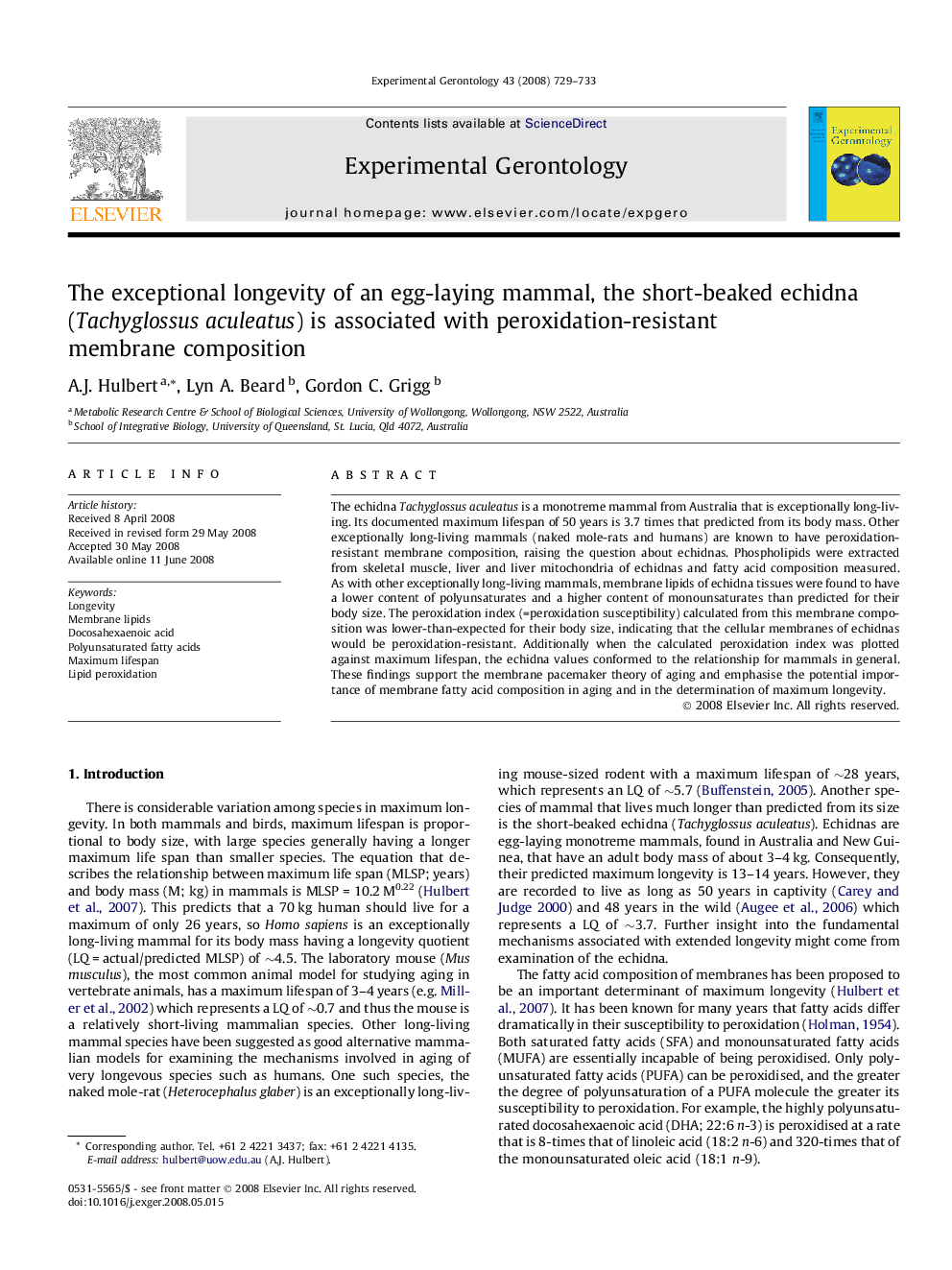| کد مقاله | کد نشریه | سال انتشار | مقاله انگلیسی | نسخه تمام متن |
|---|---|---|---|---|
| 1907092 | 1046333 | 2008 | 5 صفحه PDF | دانلود رایگان |

The echidna Tachyglossus aculeatus is a monotreme mammal from Australia that is exceptionally long-living. Its documented maximum lifespan of 50 years is 3.7 times that predicted from its body mass. Other exceptionally long-living mammals (naked mole-rats and humans) are known to have peroxidation-resistant membrane composition, raising the question about echidnas. Phospholipids were extracted from skeletal muscle, liver and liver mitochondria of echidnas and fatty acid composition measured. As with other exceptionally long-living mammals, membrane lipids of echidna tissues were found to have a lower content of polyunsaturates and a higher content of monounsaturates than predicted for their body size. The peroxidation index (=peroxidation susceptibility) calculated from this membrane composition was lower-than-expected for their body size, indicating that the cellular membranes of echidnas would be peroxidation-resistant. Additionally when the calculated peroxidation index was plotted against maximum lifespan, the echidna values conformed to the relationship for mammals in general. These findings support the membrane pacemaker theory of aging and emphasise the potential importance of membrane fatty acid composition in aging and in the determination of maximum longevity.
Journal: Experimental Gerontology - Volume 43, Issue 8, August 2008, Pages 729–733